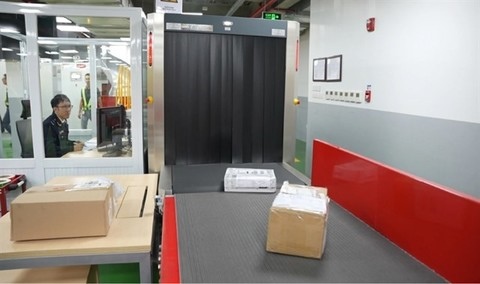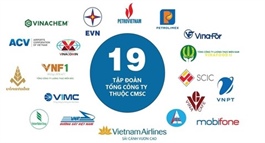Decree developed to tighten management on imported products via e-commerce
Decree developed to tighten management on imported products via e-commerce
A decree about customs management on imported products via e-commerce is being drawn up to create a legal framework to promote the sustainable development of cross-border e-commerce, which is booming in Việt Nam, according to the General Department of Customs.

A decree about customs management on imported products via e-commerce is being developed to create a legal framework to promote the sustainable development of cross-border e-commerce which is booming in Việt Nam. — Photo vov.vn |
Việt Nam is currently among the top 10 countries with the highest e-commerce growth rate in the world with revenue reaching nearly VNĐ498.9 trillion (US$20.1 billion) in 2023.
The total revenue of the top five e-commerce platforms including Shopee, Lazada, Tiki, Sendo and Tiktok shop amounted to VNĐ233.2 trillion, up 53.4 per cent against 2022, according to statistics of the e-commerce data platform Metric.
Figures from Amazon showed that the cross-border retail sales of Việt Nam increases by an average of 20 per cent per year, and are expected to reach VNĐ256.1 trillion in 2026.
Despite the boom in e-commerce, there are no legal frameworks on how to process customs procedures for imported products via e-commerce. The handling of imported products via e-commerce is currently conducted in the same way as for normal postal or express delivery parcels.
The General Department of Customs said that there are violations as some take advantage of the absence of regulations for profiteering. Accompanying the boom in e-commerce are trade fraud, smuggling and tax evasion, which are becoming more complicated, requiring solutions to tighten management.
The draft decree will focus on developing a co-ordination mechanism between relevant agencies and applying the ASEAN and national single-window systems to control cross-border trade while enhancing risk-based management, the customs watchdog said.
However, the issuance of the decree will depend on the completion of the digital customs system. Efforts must also be enhanced to prevent smuggling and trade frauds via e-commerce channels.
Đào Duy Tám, Deputy Director of the Customs Control and Supervision Department, the decree is expected to establish a firm legal framework to manage cross-border trade and facilitate operation of e-commerce companies.
Customs is investing heavily in developing an information system to control e-commerce transactions which will help improve transparency and reduce risks related to trade frauds and smuggling, he said. After the information system to manage the trading via e-commerce is completed, the decree will officially be issued.
Tám said customs will always create favourable conditions for e-commerce transactions based on the principle of complying with international practices as well as conventions on the management of transported goods, express portal services, and compliance with tax regulations, .
Policies should be reviewed to facilitate cross-border trade and at the same time, protect local production industries, he added.
Việt Nam needs a strong and transparent legal framework to ensure the legitimate rights and interests of consumers, suppliers and relevant parties, as well as security in accordance with bilateral and multilateral agreements and treaties, Bùi Trung Kiên, Vice President of Việt Nam E-commerce Association, said.
An information system is critical to improve customs management on cross-border e-commerce to prevent profiteering, he said.
Đỗ Thị Thu Thuỷ, from DHL – VNPT Express Limited Company, said that as cross-border trade is booming, the decree should be issued early to improve management efficiency and ensure trade facilitation.



























